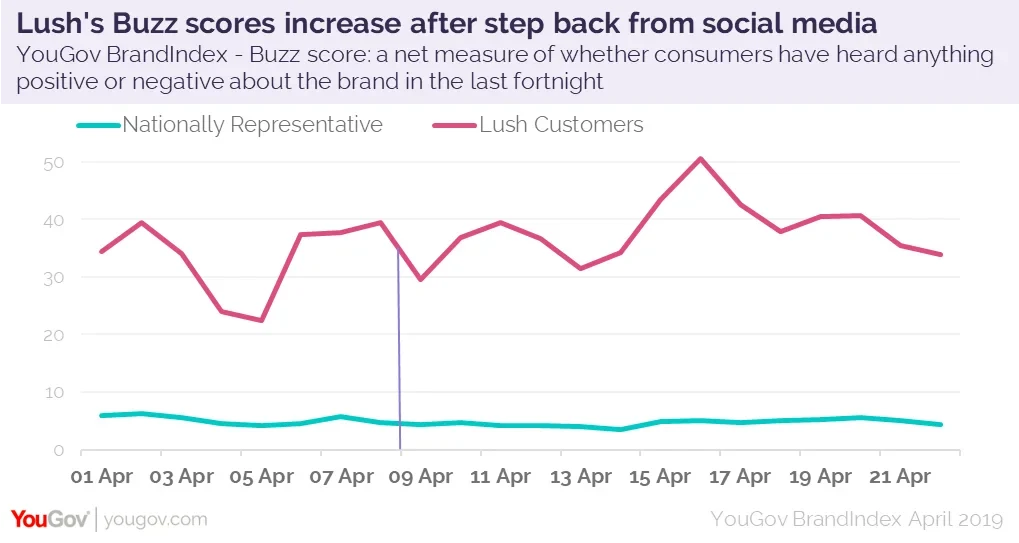Ethical cosmetics retailer Lush announced earlier this month that the brand would be changing their social strategy and ditching some accounts entirely. They said in a statement that it was getting harder and harder to talk to customers directly and that they were “fighting with algorithms” that increasingly push people to pay for brand promotion.
Lush complained that only 6% of its followers were being serviced by their content because they refused to pay for reach and engagement.
Since the announcement there’s been plenty of discussion about whether this is a wise move for a brand whose personality is embedded in social justice and social media. But has Lush suffered?
YouGov data suggests that Lush customers were inclined to support this decision from the outset. They’re very slightly less likely than the average Brit to think that social media plays a positive role in society (45% versus 47%), but are much more likely to think that it simply helps businesses to make money (61% versus 51%).
Among current customers, Lush’s Buzz score (a net measure of whether consumers have heard anything positive or negative about the brand in the last fortnight) increased after the announcement on the 9th from +29.5 to a peak of +50.5. This initial positive reaction was not mirrored among the general public, where Buzz scores initially dipped from +4.4 to +3.5.

Lush’s customer Impression scores (whether someone has a positive or negative impression of a brand) had fallen 16 points prior to the announcement (from +100 to +83.9), but then improved by 6.7 points (+90.6) afterwards, implying customers are viewing Lush more favourably now. Consideration scores (whether someone would consider purchasing from the brand in future) among this group also improved (+84.4 to +89.3).
The increase in these metrics suggests that this will be a cost effective and positive move for Lush. However, only time will tell if this will inhibit the brand’s ability to engage with the public and new customers.
Lush’s concern about digital marketing is not unique nor limited to advertisers either – many individuals also feel that the current digital marketing environment provides an inadequate experience. In response to this, YouGov has built YouGov Direct, a blockchain-based platform to allow fraud-free, relevant, messaging between advertisers and individuals.
Image: Wikimedia Commons






